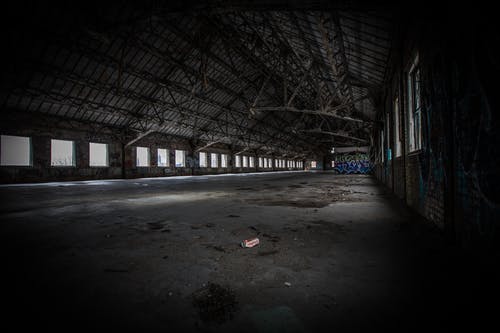Warehouse’s landlords file Chapter 11 to settle negligence claims after tragic fire.
On December 2, 2016, a fire broke out at the Ghost Ship warehouse in Oakland, California, which ultimately killed 36 people. Derick Almena, 50, pleaded guilty to 36 counts of involuntary manslaughter in exchange for a twelve-year prison sentence. Prosecutors say Almena was “criminally negligent when he illegally converted the industrial Oakland warehouse into a residence and event space for artists,” packing the building with flammable materials and extension cords. The Ghost Ship also lacked smoke detectors or sprinklers.
In April of this year, the Ng family, owners of the building, announced they would file for Chapter 11 bankruptcy, writing in their court petition a plan to liquidate their assets in order to pay an estimated $11.8 million to victims’ surviving families as well as those injured in the blaze. More than half will be taken from the family’s insurance coverage. Ghost Ship residents who lost their homes and other possessions will also receive a share. The Ng family purchased the 10,000-square-foot former dairy plant in the late 1980s.

Victims had sued Chor Nar Siu Ng and her children, Eva Ng and Kai Ng, along with the city of Oakland, PG&E, party promoters and Almena, alleging the landlord was at least partly to blame for the condition of the structure. Roughly 80 plaintiffs in total filed, and these claims were consolidated into one case. In 2020, the city of Oakland agreed to pay $23.5 million to the victims’ families and $9.2 million to Samuel Maxwell. Maxwell survived but was left badly injured. PG&E also settled last year for an undisclosed amount.
Chor Ng, the matriarch of the family, and her children, worked as property managers of the warehouse. The terms of the proposed settlement, once finalized and approved by the bankruptcy court, will require the family to put $6 million in insurance money into a trust for the victims. The Ngs will also make another initial payment of $1 million. The rest of the civil settlement will come from the proceeds of the sale of their properties, including the sale of the Ghost Ship, which has sat empty for five years.
According to emails, Kai Ng knew about the dangerous electrical conditions in the Ghost Ship and approved an unlicensed electrician to install a transformer in the auto body shop. In a February 2015 email to master tenant Almena, the building manager wrote, “The lack of electrical infrastructure was made very clear before your lease began.” Almena co-signed the lease in November 2013, and the exact cause of the fire is not known, but it is thought to have been electrical.
“This is the end of a long journey for these families,” said plaintiff attorney Mary Alexander. “They are disappointed that the Ngs were not held accountable criminally. As an owner of a building, you have the duty to make it safe and to know what is going on in your building. Here, they claim they didn’t know and of course they did. There’s evidence they would come to the building to collect rent and do repairs.”
Sources:
Ghost Ship warehouse landlord files bankruptcy to settle lawsuit


Join the conversation!